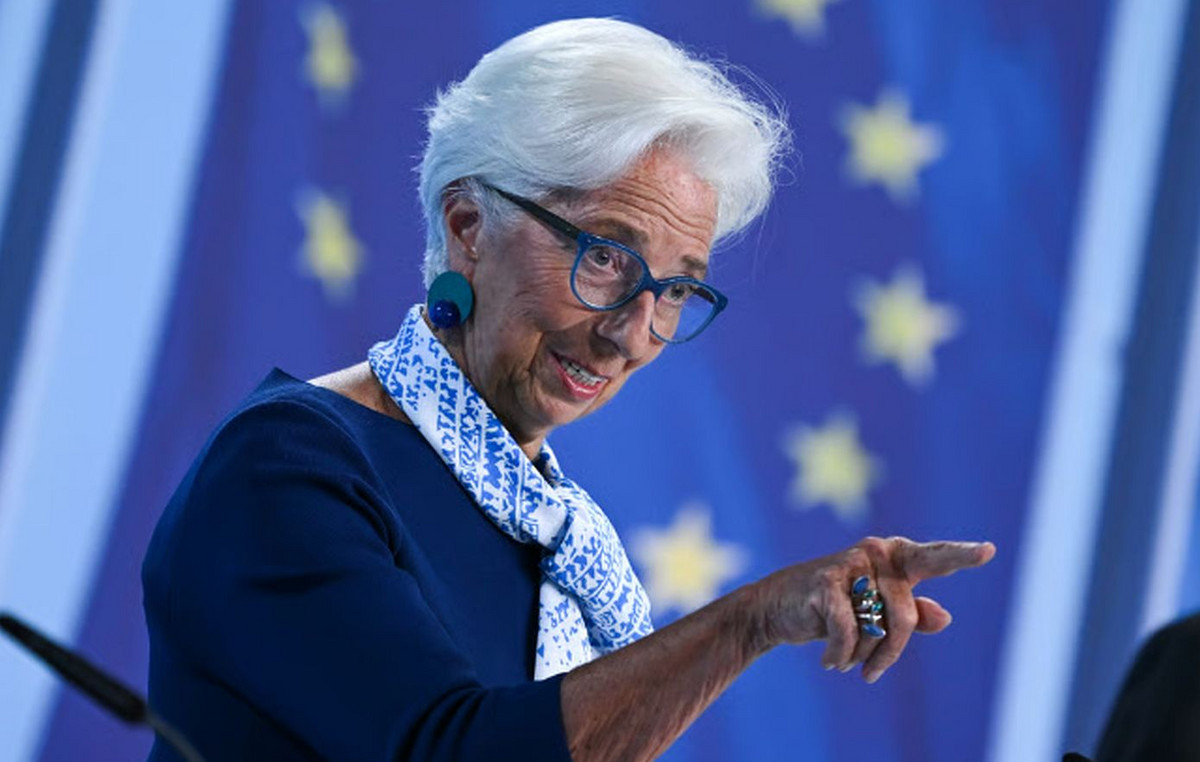Global markets started the week in the red after widespread protests in China against the country’s strict Covid-19 restrictions took a toll on investor sentiment.
European markets opened lower, following the performance of Asian equities. The FTSE 100 (UKX) was down 0.7%, the CAC 40 (CAC40) was down 0.6% and the DAX (DAX) was down 0.5%.
Earlier, Hong Kong’s benchmark Hang Seng (HSI) index ended the day down 1.6% after paring some losses. He had started the session in a fall of up to 4.2%. The Hang Seng (HSI) China Enterprises Index, which tracks the performance of mainland Chinese companies listed in Hong Kong, lost 1.7% at the close of trade.
In mainland China, the benchmark Shanghai Composite fell 2.2% before paring losses to finish 0.8% lower than at Friday’s close. The tech-heavy Shenzhen Component Index fell 0.7%.
The Chinese yuan, also known as the renminbi, dropped against the US dollar on Monday morning. The onshore yuan, traded in the tightly controlled domestic market, weakened 0.9%. It was 0.5% lower at 7.213 to the dollar in the afternoon. In offshore trading, the coin was down 0.3% to 7.213 to the dollar.
The weakening yuan suggests that “investors are freezing in China,” said Stephen Innes, managing partner at SPI Asset Management, adding that the currency could be “the simplest barometer” to gauge what domestic and foreign investors think.
The markets tumble comes after protests erupted across China in an unprecedented show of defiance against the country’s stringent and increasingly costly Covid-zero policy.
In the country’s biggest cities, from the financial hub of Shanghai to the capital Beijing, residents gathered over the weekend to mourn those killed in a wildfire in Xinjiang, speak out against Covid-zero and call for freedom and democracy.
Such widespread scenes of anger and defiance, some of which lasted into the early hours of Monday morning, are exceptionally rare in China. Economic growth has dropped and unemployment has risen as a result of the lockdowns.
Oil falls nearly 3%
Asian markets were largely affected. South Korea’s Kospi lost 1.2%, Japan’s Nikkei 225 (N225) was down 0.4% and Australia’s S&P/ASX 200 was also down 0.4% at the close of trade.
US stock futures – an indication of how markets are likely to open – edged lower, with Dow futures down 0.3%, or 108 points. S&P 500 futures were down 0.5%, while Nasdaq futures were down 0.6%.
Commodities also fell on concerns about China. Oil prices fell sharply as investors worried that the rise in Covid cases and protests in China could dampen demand from one of the world’s biggest oil consumers.
US crude futures fell 2.7% to trade at $74.22 a barrel. Brent crude, the global oil benchmark, lost 2.9% to $81.25 a barrel.
On Friday, the day before the protests began, China’s central bank cut the amount of money creditors must hold in reserve for the second time this year. The reserve requirement ratio for most banks (RRR) was reduced by 0.25 percentage points.
The move was aimed at sustaining an economy that had been hobbled by strict Covid restrictions and a struggling housing market. But analysts don’t think the change will have a significant impact.
“Cutting the RRR now is like pushing a rope as we believe the real drag on the economy is the pandemic rather than insufficient borrowing funds,” analysts at Nomura said in a research report released on Monday.
“In our view, ending pandemic measures as soon as possible is the key to recovering credit demand and economic growth,” they said.
Economy in tug of war?
Innes of SPI Asset Management said China’s economy is currently in the midst of a tug of war between the weakening economy and hopes of reopening.
“For China’s official institutions, there are no easy ways. Accelerating reopening plans when new Covid cases are on the rise is unlikely given the low vaccination coverage of the elderly,” he said.
“Mass protests would tip the scales sharply in favor of an even weaker economy and would likely be accompanied by a massive rise in Covid cases, leaving policymakers with a considerable quandary.”
In the near term, he said, Chinese equities and the currency are likely to price “more significant uncertainty” around Beijing’s reaction to the ongoing protests. He expects social discontent could rise in China in the coming months, testing policymakers’ resolve to stick to their draconian Covid-zero mandates.
But in the long term, the most pragmatic and likely outcome should be “a more rapid easing of restrictions [Covid] once the current wave subsides,” he said.
Goldman Sachs, in a research report published late on Sunday, predicted that China could abandon its Covid-zero policy sooner than expected, with “some chance of a forced and disorderly exit”.
CNN’s Beijing office contributed to this story.
Source: CNN Brasil
A journalist with over 7 years of experience in the news industry, currently working at World Stock Market as an author for the Entertainment section and also contributing to the Economics or finance section on a part-time basis. Has a passion for Entertainment and fashion topics, and has put in a lot of research and effort to provide accurate information to readers.







